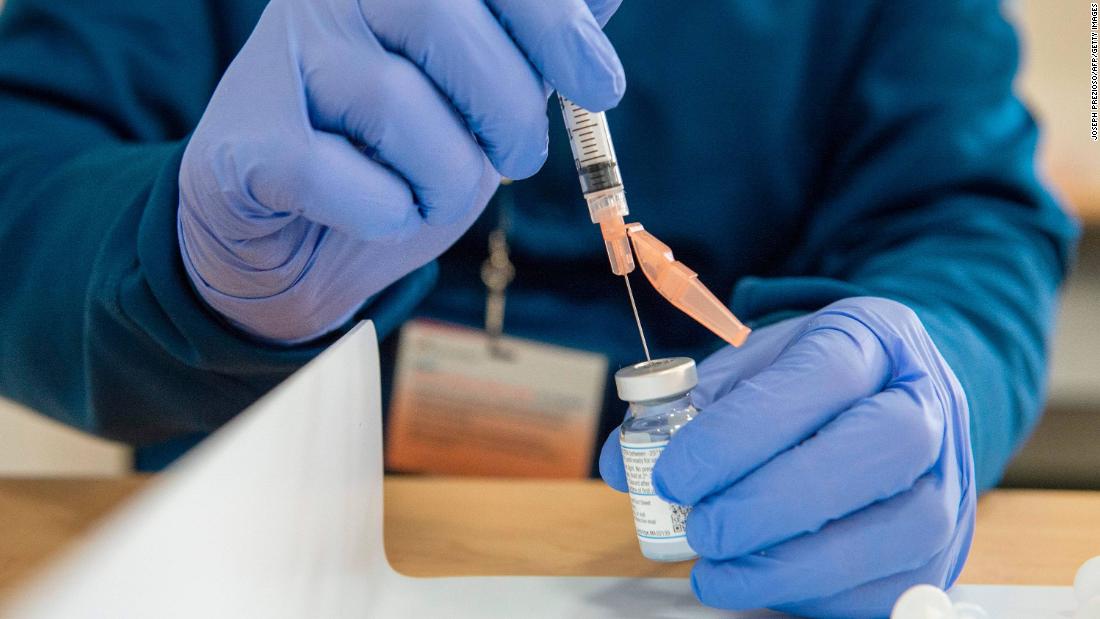To answer the questions your family and friends may have about the Covid-19 vaccine, we consulted two experts:
Medical experts, successful clinical trials and the Centers for Disease Control and Prevention in the United States have repeatedly assured us of the safety and effectiveness of the two Covid-19 vaccines available now, from Moderna and Pfizer.
But health experts also take their concerns seriously, said Schaffner.
“We have to take everyone’s hesitation and skepticism seriously,” he said. “This is a new virus in the human population, new vaccines using new technologies, so you understand that people are a little hesitant.”
If they say:
“I don’t know what’s in the vaccine.”
You can say: This is fair. Vaccine ingredient lists include many long names that only a chemist would recognize.
Fatty lipids: The mRNA is very fragile, so it is coated with a fatty lipid to protect it. Lipids, a buttery substance, can melt at room temperature – which is why the two vaccines must be kept at extremely low temperatures. Fatty lipids used in Covid-19 vaccines include polyethylene glycol-2000 and cholesterol, among others.
Other vaccines still being tested in the United States, such as AstraZeneca, have different technologies than mRNA and, therefore, have different ingredients.
If they say:
“The vaccine was created very quickly to be reliable.”
You can say: It is true that Covid-19 vaccines currently authorized for emergency use by the US Food and Drug Administration were developed and tested more quickly than other vaccines with which we are familiar. But extensive clinical trials have proven their effectiveness.
So instead of waiting for test results to make a vaccine, the companies that created these vaccines produced them simultaneously so they were ready to be deployed when the tests were completed, said Schaffner. Typically, companies that create vaccines would wait for a test to finish before giving the OK to manufacture the vaccines.
“Of course, our ‘bet’, if you want, has won,” said Schaffner. Pfizer and Moderna vaccines are 94 to 95% effective in preventing serious diseases caused by Covid-19.
The technology that vaccines use, mRNA, was developed long before the virus that causes Covid-19 to circulate in humans, so the technology can be trusted, Schaffner and Karron said.
Vaccine developers also had the resources to speed up the process – there was no question of demand or funding, said Karron.
If they say:
“The vaccine can give me Covid-19.”
You can say: The vaccine cannot provide Covid-19, said Schaffner, because it does not contain the virus. It contains mRNA, or messenger ribonucleic acid, that tells cells how to create the protein peak that the virus uses to infect other cells.
The live virus never enters your body during the vaccination process, said Karron – your cells learn to make a part of the virus, but the coronavirus cannot replicate itself that way.
You may experience some “intense but brief” symptoms, such as fatigue, nausea and low-grade fever after vaccination, she said. These are often synonymous with Covid-19, but these vaccine-induced side effects are expected to decrease within 24 to 48 hours, she said.
It is also possible that you will not experience side effects, said Karron, or they may be as mild as a headache and a sore arm. In any case, you will not get Covid-19 when you are vaccinated.
If they say:
“The vaccine can alter my DNA.”
You can say: Covid-19 vaccines do not alter or interact with your DNA.
The mRNA never enters the cell’s nucleus, which houses the DNA, Karron said. It does its job in the cytoplasm, the fluid within a cell.
The mRNA is also not in the body. It dissolves as soon as it sends a message to cells and leaves the body, Schaffner said.
If they say:
“The vaccine can cause autism or a birth defect in my son.”
As stated above, the Covid-19 vaccine does not interfere with DNA.
If they say:
“The side effects of the vaccine can be serious.”
You can say: You are unlikely to have a serious reaction to the Covid-19 vaccine. You are much more likely to have a “local reaction”, such as redness and pain in your arm or low fever, Schaffner said.
The side effects of the virus tend to be more severe after the second dose of Moderna or Pfizer vaccines, Karron said, so it’s smart to plan for that. You may want to take a day off from work after getting the vaccine if you are very tired. The symptoms also tend to be more severe in young people than in older people who are vaccinated, she said.
“It’s a small price to pay to avoid Covid,” said Karron.
If they say:
“I could have an allergic reaction to the virus.”
You can say: This is possible, but very rare: about 11 cases per million cases of Covid-19 vaccinations resulted in an allergic reaction, said Karron.
People with severe allergies or people with EpiPen should consult their doctor before being vaccinated, she said, but even those with allergies took the vaccine without reaction.
CNN’s Sandee LaMotte and Maggie Fox contributed to this report.
